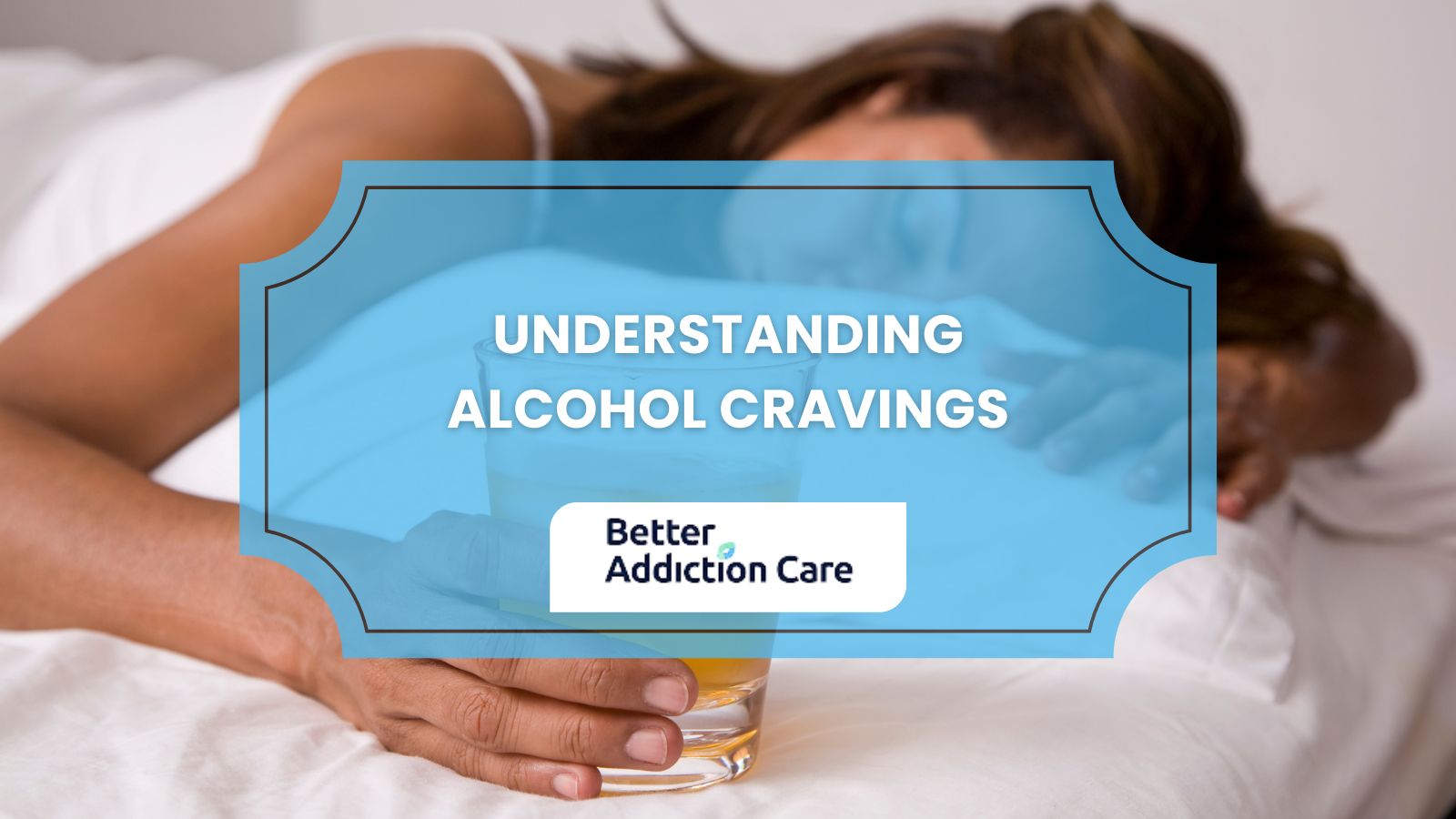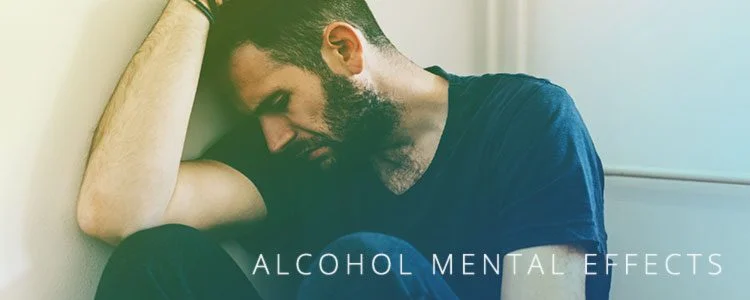The Consequences of Mixing Dramamine and Alcohol
For those who rely on Dramamine (dimenhydrinate) to manage motion sickness during travel or daily activities, it's important to understand the serious risks involved when combining this common over-the-counter medication with alcohol. According to the National Institute on Alcohol Abuse and Alcoholism, combining alcohol with medications like Dramamine significantly increases the risk of dangerous interactions, with timing being crucial since harmful effects occur even when substances aren't taken simultaneously.
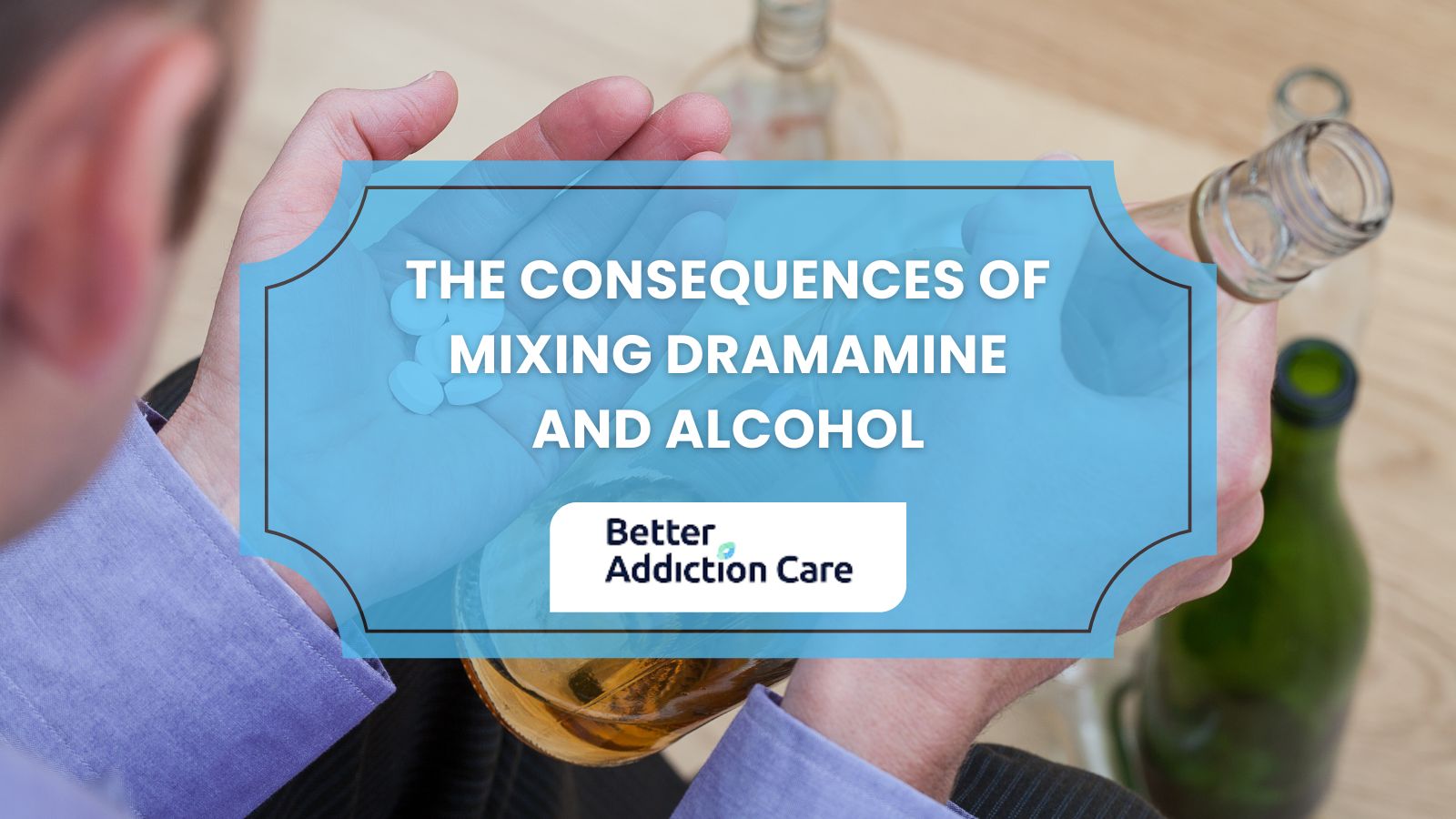
Combining Dramamine and alcohol leads to severe central nervous system depression, resulting in excessive drowsiness and impaired cognitive function. The interaction of these substances alters brain chemistry by inhibiting neurotransmitter systems, enhancing sedative effects, and disrupting motor skills. Other risks include compromised decision-making, heightened injury potential, and an increased likelihood of psychological dependency due to their combined effects.
What Happens When Dramamine and Alcohol Are Used Together?
Combining Dramamine and alcohol leads to severe central nervous system depression, resulting in excessive drowsiness, dizziness, impaired cognitive function (memory, attention, decision-making), enhanced sedation, and reduced motor skills. Additional risks include stomach irritation, dehydration, increased accident risk, and potentially life-threatening respiratory depression.
|
Effect |
Description |
|
Increased Drowsiness |
Both Dramamine and alcohol have sedative properties, leading to excessive drowsiness and fatigue when used together. |
|
Dizziness and Vertigo |
The combination enhances feelings of dizziness and vertigo, impairing balance and coordination. |
|
Impaired Cognitive Function |
Memory, attention, and decision-making processes are significantly impaired, increasing the risk of accidents and injuries. |
|
Enhanced Sedation |
The sedative effects of both substances were potentiated, causing profound sedation and dangerous levels of sleepiness. |
|
Decreased Motor Skills |
Coordination and balance are compromised, making physical tasks like driving or operating machinery hazardous. |
How Do Dramamine and Alcohol Change the Brain Chemistry?
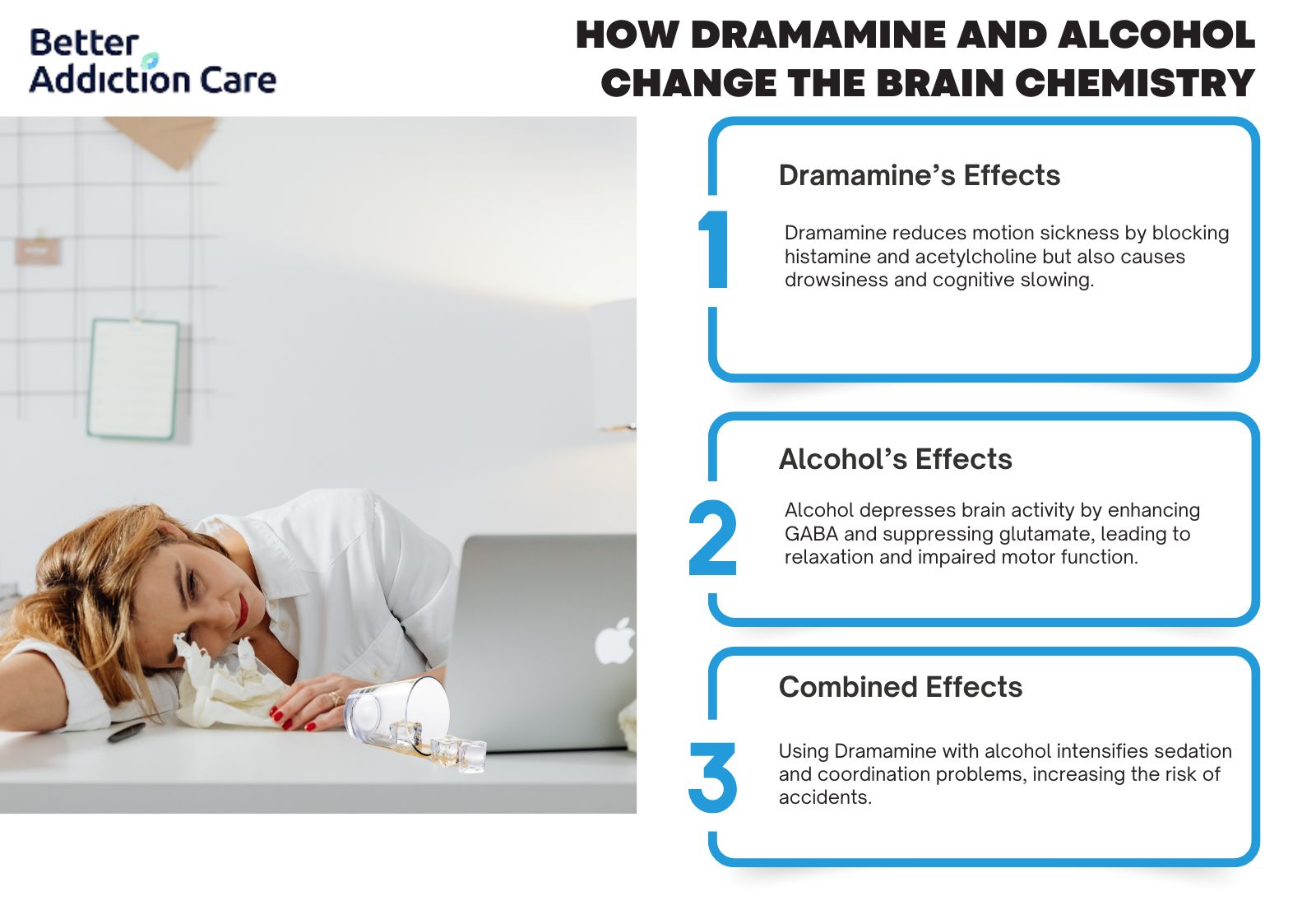
Dramamine and alcohol change the brain chemistry by inhibiting multiple neurotransmitter systems, enhancing sedative effects, and impairing cognitive functions. The combination affects histamine receptors, causing drowsiness, disrupts acetylcholine activity, leading to vestibular changes, increases GABA inhibition, producing relaxation, reduces glutamate excitation, affecting motor skills, and triggers dopamine release in reward pathways.
Here are the common effects of Dramamine and alcohol on the brain chemistry:
Dramamine’s Effects on Brain Chemistry
Dramamine acts primarily on the brain through its antihistamine and anticholinergic properties. By blocking histamine H1 receptors, it reduces histamine activity, which leads to decreased alertness and induces drowsiness. This mechanism helps prevent motion sickness but also contributes to sedation. The anticholinergic component of Dramamine further suppresses activity in the vestibular system by reducing acetylcholine function, thereby decreasing nausea and vomiting. However, this suppression also leads to side effects such as dry mouth, blurred vision, and impaired cognitive function.
Alcohol’s Effects on Brain Chemistry
Alcohol functions as a central nervous system depressant, influencing multiple neurotransmitter systems. It enhances the effects of GABA, the primary inhibitory neurotransmitter, resulting in slowed brain activity, relaxation, and impaired motor control. At the same time, alcohol dampens glutamate signaling, which disrupts excitatory nerve transmission and impairs cognitive and motor performance. Additionally, alcohol triggers dopamine release in the brain's reward pathways, reinforcing pleasurable sensations and increasing the risk of dependency with repeated use.
Combined Effects on Brain Chemistry
Combining alcohol and Dramamine significantly amplifies their individual effects on the brain. Both substances depress central nervous system activity through overlapping mechanisms involving histamine, acetylcholine, GABA, and glutamate systems. This interaction heightens sedation, causing extreme drowsiness, dizziness, and impaired mental function. The combined impact on reaction times, coordination, and decision-making increases the likelihood of accidents and injuries, making the concurrent use of these substances particularly hazardous.
What Are the Other Risks of Mixing Dramamine and Alcohol?
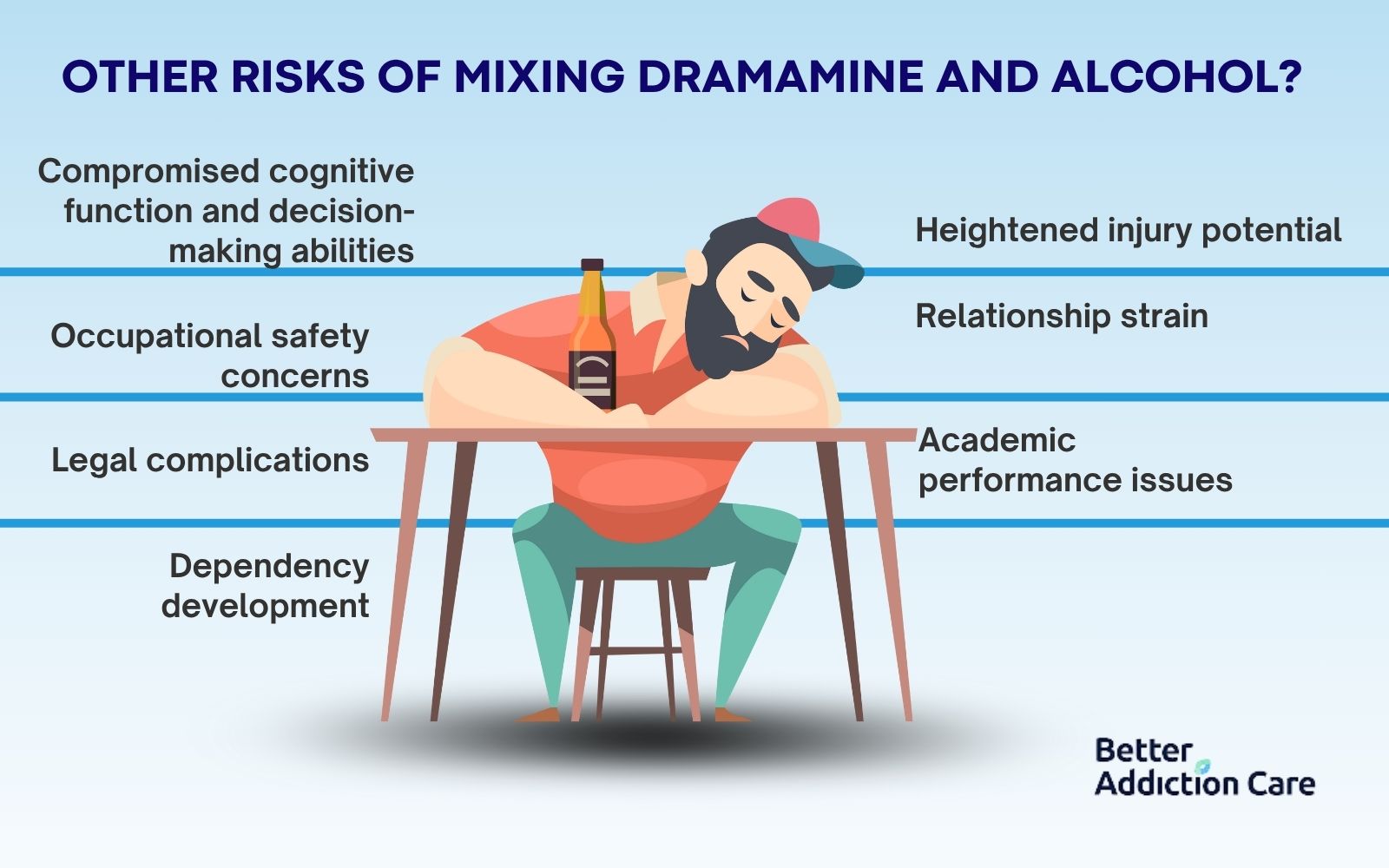
The other risks of mixing Dramamine and alcohol include compromised cognitive function and decision-making abilities, heightened injury potential, occupational safety concerns, relationship strain, legal complications, academic performance issues, and dependency development. These combined effects create a cascade of consequences that extend far beyond immediate physical symptoms, affecting multiple aspects of personal, professional, and social well-being.
Can Dramamine and Alcohol Be More Addictive Together?
Combining Dramamine and alcohol increases the risk of psychological dependency due to their combined sedative and mood-altering effects. Together they enhance relaxation and euphoria, encouraging repeated use. This pattern leads to tolerance, misuse, and impaired decision-making, raising the potential for dependence. Professional guidance is essential to address any concerning patterns of use.
What Not To Mix With Dramamine?
Dramamine (dimenhydrinate) should not be mixed with other antihistamines, especially first-generation ones like diphenhydramine (Benadryl), due to increased risk of side effects such as drowsiness and dry mouth. Combining it with sedatives, including benzodiazepines, opioids, muscle relaxants, and sleep aids, heightens the risk of excessive sedation, impaired breathing, and coma. It also interacts adversely with anticholinergic drugs, worsening side effects like dry mouth, blurred vision, and confusion. Alcohol consumption with Dramamine increases dizziness, drowsiness, and worsens motion sickness symptoms, so alcohol should be avoided while taking it.
What Medicines Are Bad To Mix With Alcohol?
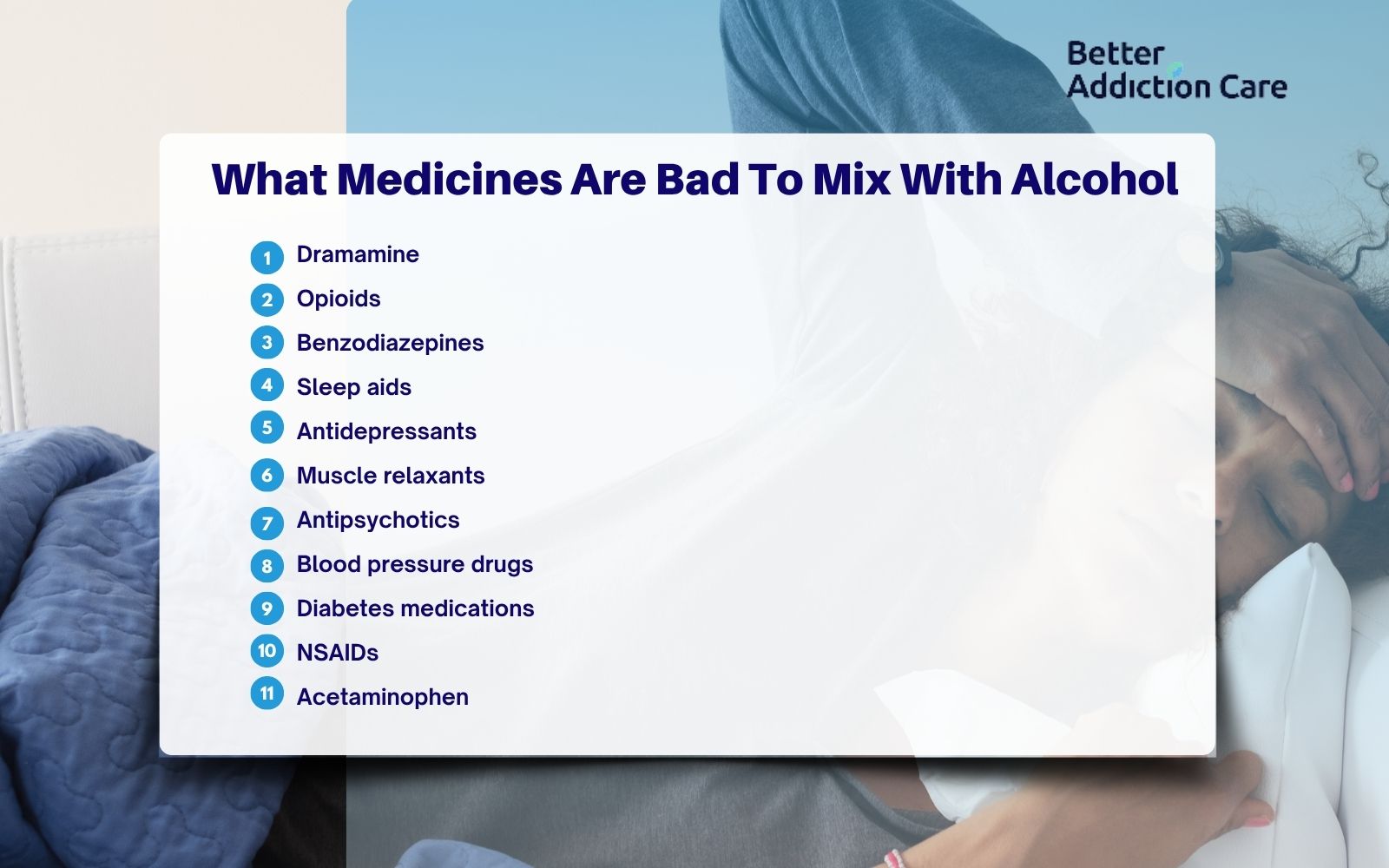
Medicines like Dramamine, opioids, benzodiazepines, sleep aids, antidepressants, muscle relaxants, antipsychotics, blood pressure drugs, diabetes medications, NSAIDs, and acetaminophen are bad to mix with alcohol. Each combination increases the risk of severe side effects such as extreme sedation, impaired brain function, breathing problems, liver damage, gastrointestinal bleeding, dangerously low blood pressure or blood sugar, and in some cases, life-threatening complications. Always avoid alcohol when taking these medications to prevent harmful interactions.
Can Mixing Dramamine And Alcohol Lead To Alcohol Abuse Disorder?
Yes, mixing Dramamine and alcohol leads to alcohol abuse disorder by intensifying central nervous system depression, causing extreme drowsiness, impaired thinking, reduced motor control, and higher risk of breathing problems. This combination increases the likelihood of dependency, poor judgment, and serious health consequences. Individuals struggling with ongoing substance misuse tied to this or similar interactions could be dealing with alcohol use disorder and should seek professional support for safe recovery.
How To Find Alcohol Rehab Facilities Near You?
To find alcohol rehab facilities near you, start by researching treatment centers in your local area through online directories, healthcare provider recommendations, and insurance company networks. Contact your primary care physician or mental health professional for referrals, as they understand your specific needs and have connections with reputable facilities. Additionally, reach out to your insurance provider to understand coverage options and get a list of in-network treatment centers that will minimize out-of-pocket costs.
We at Better Addiction Care understand that locating the right treatment facility is crucial for successful recovery. Use our local alcohol rehab facility locator to find comprehensive listings of treatment centers in your area, complete with detailed information about services, treatment approaches, and contact details. Our platform connects you with verified facilities that offer various levels of care, from outpatient counseling to intensive residential programs, ensuring you find the most appropriate treatment option for your specific situation and recovery goals.





